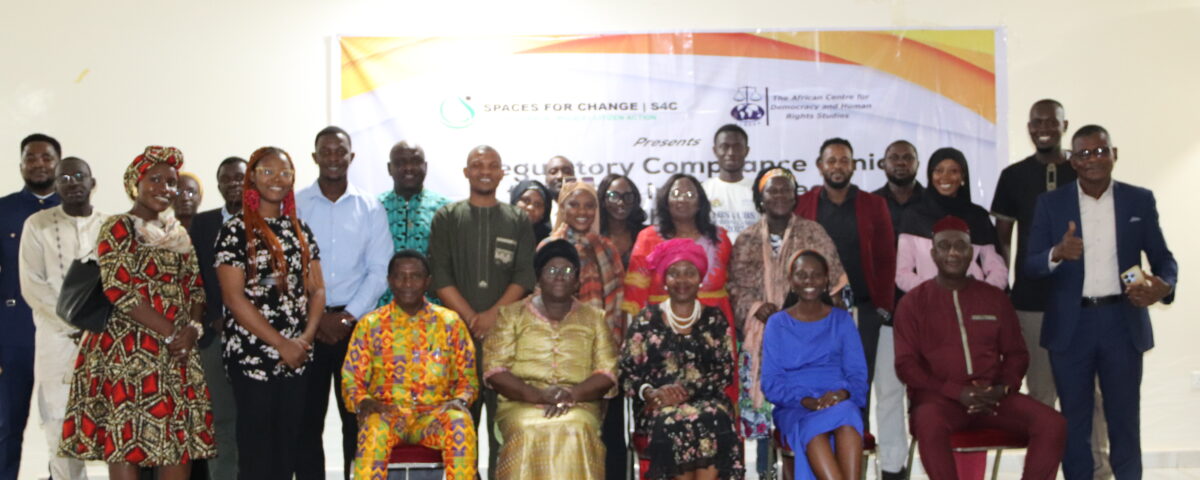31/01/25
The Spaces for Change and the African Centre for Democracy and Human Rights Studies event successfully concluded after an intensive and insightful series of discussions, panel sessions, and presentations focusing on the complexities of regulatory compliance for non-profit organizations (NPOs) in West Africa. Over the course of the sessions, participants engaged in meaningful exchanges on the intersection of security regulations, human rights, and civic space, providing a platform for Civil Society Organizations (CSOs) to navigate the evolving landscape of legal compliance and governance.
The event highlighted key concerns regarding the restrictive application of Anti-Money Laundering (AML) and Countering the Financing of Terrorism (CFT) laws, which, in many cases, have been misused to curtail civic freedoms. Experts and stakeholders shared strategies on how CSOs can effectively engage policymakers to ensure fair regulatory frameworks while strengthening their internal governance and compliance mechanisms. The launch of two new reports further underscored the pressing need to balance national security imperatives with human rights protections. These reports include the Counter-Terrorism Report and the report mapping civil society engagement in Africa-led peace operations.
Panel discussions brought forth a variety of perspectives, with emphasis on fostering trust between governments and CSOs. The sessions underscored the need for CSOs to play a proactive role in policy advocacy, capacity-building, and strategic litigation to safeguard democratic values. Sessions provided participants the knowledge to enhance financial accountability, governance structures, and operational compliance in line with international best practices.
The closing session reaffirmed Spaces for Change and its partners’ commitment to continuing to support CSOs through knowledge-sharing initiatives, research, and advocacy. As participants departed, there was a shared sense of urgency to implement the lessons learned, engage in collaborative efforts, and advocate for legal frameworks that enable rather than stifle civil society work. The event marked a significant step forward in ensuring that CSOs remain resilient and effective in their mission to promote democracy, human rights, and social justice across the region.


